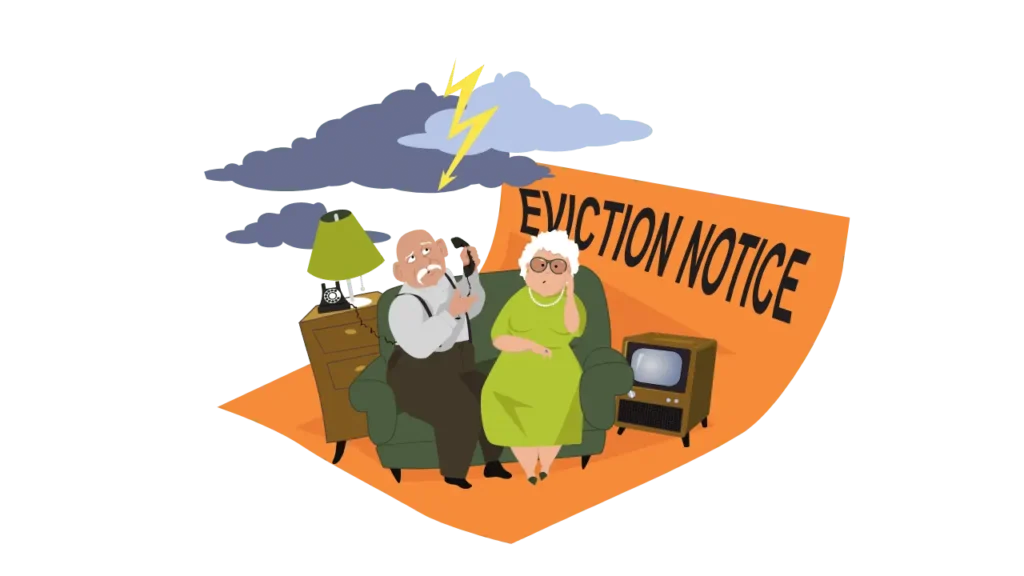The Bible recognizes property rights and the significance of honoring agreements which suggests a right to eviction if terms aren’t met. However, it also emphasizes compassion and mercy. Each situation would need to be considered individually, weighing both justice and compassion.

The Bible provides valuable guidance on responsibilities and ethical considerations related to property ownership and landlord-tenant relationships. The Bible recognizes individual property rights. The Ten Commandments, for example, prohibit stealing and coveting a neighbor’s property.
“You shall not covet your neighbor’s house; you shall not covet your neighbor’s wife, or his male servant, or his female servant, or his ox, or his donkey, or anything that is your neighbor’s.“
Exodus 20:17
In the Hebrew passage, the term “covet” (chamad) and the Greek equivalent “epithumeo” (as seen in Romans 7:7) both convey the idea of having a strong, sometimes inappropriate desire or want for something. In this context, “covet” specifically implies a wrongful desire to take something from another person, something that rightfully belongs to them.
Eviction in Light of the Parable of the Vineyard and Tenants
The story of the vineyard and the tenants is a parable that Jesus shared with the chief priests and the elders of the people. It’s themes can be applied to the topic. At its core, the parable deals with the idea of responsibility, the rights of ownership, and the consequences that come from failing to respect those rights and responsibilities. Here’s the story as found in Matthew 21:33-46 :
A landowner rented out his vineyard to farmers and moved away. At harvest, he sent servants to collect the fruit, but the tenants mistreated them, beating, killing, or stoning them. The landowner then sent his son, thinking they would respect him. Instead, the tenants killed the son to try to seize his inheritance.
“Therefore, when the owner of the vineyard comes, what will he do to those tenants?” They replied, “He will bring those wretches to a wretched end, and he will rent the vineyard to other tenants, who will give him his share of the crop at harvest time.”
Matthew 21: 40-41:
Let’s break down the relevant themes in these verses that can relate to the topic of eviction:
Stewardship: The parable’s tenants were tasked with caring for the vineyard. Like modern tenants, they had responsibilities, such as maintaining the property.
Ownership: The vineyard was the landowner’s. He expected returns on his investment, much as today’s property owners expect rent or other compensation.
Consequences: according to this parable the tenants should face consequence for mistreating the landowner’s representatives. Similarly, modern tenants can face eviction for not fulfilling rental agreements or damaging property.
It is better not to vow than to make a vow and not fulfill it. Do not let your mouth lead you into sin.
Ecclesiastes 5:5
In summary The timeless wisdom of this parable emphasizes the importance for tenants to uphold rental commitments, and it reaffirms the landlords’ right to evict when such agreements are violated.
Biblical Perspectives on Compassionate Landlordship
In an era where financial stability is a challenge for many. If the income from a tenant is surplus to a landlord’s necessary living expenses, and they can comfortably sustain without the immediate rent from a tenant, Scripture suggests sharing or easing the financial burden , and some form of financial leniency should be considered for those who are facing hardship.
“John answered, ‘Anyone who has two shirts should share with the one who has none, and anyone who has food should do the same.'”
Luke 3:11
Furthermore, the Bible emphasizes not exploiting the needy:
“If you lend money to one of my people among you who is needy, do not treat it like a business deal; charge no interest.”
Exodus 22:25
“If anyone is poor among your fellow Israelites in any of the towns of the land the Lord your God is giving you, do not be hardhearted or tightfisted toward them. Rather, be openhanded and freely lend them whatever they need
Deuteronomy 15:7
Conclusion
Landlords, when dealing with tenants facing financial hardships, are encouraged by biblical teachings to show compassion and understanding. Exploiting those in need, especially by charging excessive rents or evicting them hastily, might contradict the spirit of these teachings. Instead, landlords should seek compassionate solutions.



